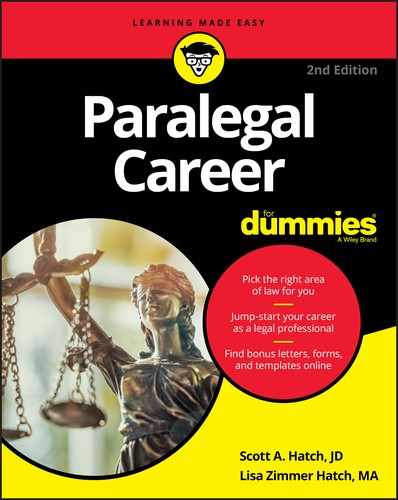Book Description
Your career as a top-notch paralegal starts here
The demand for paralegal professionals is exploding, and Paralegal Career For Dummies, 2nd Edition explains the skills and requirements needed to pursue this rewarding career. Inside, you’ll discover the ins and outs of paralegal skills, from preparing documents and performing legal research to obtaining certification, job hunting, and understanding legal concepts.
Use this hands-on guide to help in your career considerations, bolster your paralegal training, or as an everyday on-the-job reference. Paralegal Career For Dummies will be your trusty assistant through all phases of your life as a paralegal, taking you forward with tips on networking and joining professional organizations that will enhance your career.
- Discover the job skills required for success as a paralegal
- Learn important legal concepts you’ll need on the job
- Access forms, templates, and examples on the companion website
- Develop strategies to manage time and advance your career
Complete with a companion website containing a wealth of valuable information, this book covers everything you need to become a top-notch paralegal.
